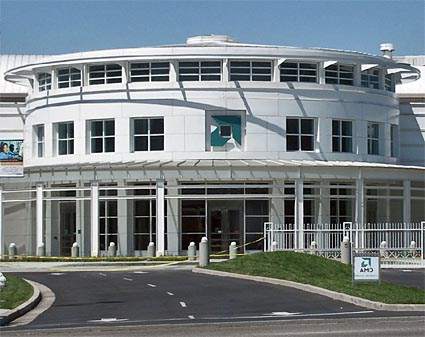Shares of AMD were buoyed nearly ten percent by rumors that Snapdragon master Qualcomm may be interested in acquiring the fabless chip company.
Other contenders reportedly include Samsung, which was purportedly eyeing AMD for its processing technology.

However, as the folks over at TechEye point out, the Samsung rumor doesn’t make much sense, as AMD designs x86 processors for servers, desktops and laptops – rather than RISC-based chips for tablets or smartphones.
“Both AMD and Qualcomm lack fabs which Samsung has. AMD wants to get into the ARM mobile market, and Qualcomm would be happy if it can give Intel a kicking in the x86 market,” the TechEye crew explained.
“Samsung would find itself making chips for both. By consolidating these three could put the wind up Intel.”
The latest and greatest Qualcomm rumor was apparently sparked by Evercore Partners analyst Patrick Wang who claimed the mobile industry heavyweight had expressed interest in possibly acquiring AMD.
However, even Wang was quick to downplay the significance of such reports, saying it was “unlikely [AMD already] got a take-out offer.”
AMD has found itself in a difficult position over the last few years as it struggles to compete against Intel in the x86 PC and server market. The company has also been criticized for failing to plot a coherent mobile strategy as the market shifts away from traditional PCs to embrace tablets powered by RISC-based ARM architecture.
Indeed, global PC sales have remained painfully stagnant for several consecutive quarters, prompting industry watchers to pin their hopes on Microsoft Windows 8. Nevertheless, Barclays analyst Ben Reitzes believes the upcoming Windows 8 launch will only have a limited impact on the waning PC market.
“We continue to believe that the rise of smartphones and the iPad are having an adverse impact on the PC market – in addition to macro [economic] factors,” Reitzes opined in a recent industry note.
Although initial shipments of Windows 8 PCs and Ultrabooks are projected to “meaningfully” improve in September, Reitzes remains pessimistic about the long-term future.
“After some short-term ‘excitement’ we believe the PC market will resume its pattern of deceleration given secular threats from tablets and smartphones. .. [Both form factors] are cannibalizing traditional PC tasks and creating all new use cases through apps,” he added.






